MOST OF THE RIVERBOATS ARE GONE NOW, but would-be riverboat gamblers have many options along the Mississippi. We set up camp at the Ameristar Casino’s RV park, just across the road from Ole Man River in Vicksburg MS. The big draw for us isn’t craps, slots or blackjack but three of the remaining handful of National Parks sites that we haven’t visited yet. The Vicksburg National Military Park is right in our backyard, so to speak, but we began with the Natchez National Historical Park, 50 miles yonder and finished with Poverty Point in Louisiana.
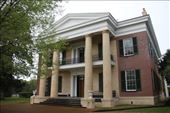
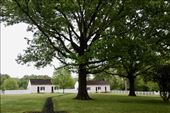
Melrose Mansion Slave Quarters
The city of Natchez was founded by the French in 1716, ceded to England after the French and Indian War and claimed by the USA after the Revolutionary War. Its stratigic location on the Mississippi River made it a center of commerce and trade. We visited the Melrose Estate of former Senator John McMurran, one of two sites in the National Historic Park that are open to the public. It isn’t the antebellum (before the War Between the States) mansion that makes Melrose interesting but the original slave quarters on the property.
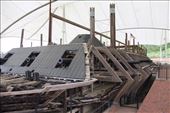

USS Cairo . . . and Crew
Unless you are a true Civil War buff (or Ken Burns) Vicksburg would be just another Civil War battlefield. Like so many others, it has monuments of the various units who fought and memorials to the thousands who died, canons and breastworks denoting the battle lines and details of who led which charge and when. But hidden (well, it’s pretty obvious if you follow the drive) within the park is the reconstructed Union ironclad warship, the USS Cairo. Pronounce “kay-row,” and known as the “Hardluck Ironclad” it was the first US ship ever sunk by a torpedo, actually a mine. It was sunk in 1862 with no loss of life and was recovered from the Yazoo River in 1964.
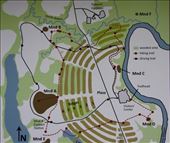
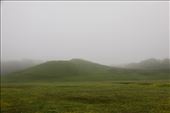
Poverty Point Mound A
Poverty Point is located in northwestern Louisiana and is named for the 19th Century plantation on the site. Poverty Point is a State Historic Site, a US National Monument, U.S. National Historic Landmark, and a UNESCO World Heritage Site . It doesn’t seem like much when compared to Mesa Verde or Chaco Canyon but it is — and I quote — "the largest and most complex Late Archaic earthwork occupation and ceremonial site yet found in North America" The site contains mounds and earthen ridges dating from 1700-1100 BC whose function remains unknown. Speculation and excavation continues.